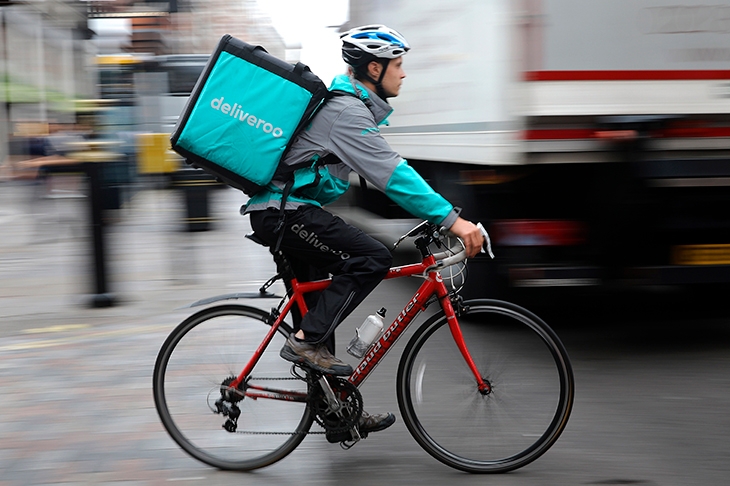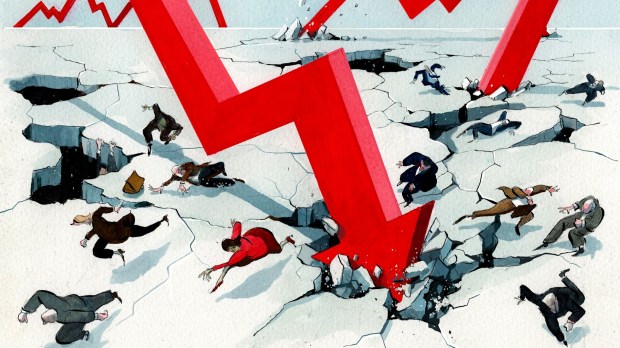‘The reason we have the vaccine success is because of capitalism — because of greed, my friends.’ So Boris Johnson told his backbenchers last week, though he immediately muttered ‘Forget I said that’ while aides tried to explain it as a joke on the chief whip, who was munching a cheese and pickle sandwich at the time. Whatever, the PM’s gaffe makes a neat text for a short Easter sermon.
The fact is that ‘capitalism’ — the mustering of vast private-sector resources to bring lab-tested potions to mass production in record time — has indeed delivered a triumph, in combination with university science, a smart Whitehall taskforce, military logistics and NHS networks. And both the capital and the people involved deserve appropriate rewards, because that’s how capitalism has generated progress and prosperity throughout the modern age.
And yes, ‘greed’ is sometimes capitalism’s rocket fuel, especially in finance. But not in this case — in which AstraZeneca is providing vaccines at cost and all major participants, I suspect, are motivated far more by the long-term rewards of shared success than by money. It’s a damned nuisance capitalism has been badged with greed ever since Michael Douglas’s famous line in the 1987 film Wall Street, because it blurs a vital distinction between constructive and exploitative forms of business. As one boardroom veteran said to me this week: ‘Why don’t we talk about “enterprise” instead? That word has much more positive connotations.’
Why shun Deliveroo?
Deliveroo has come to market at a valuation of around £8 billion. I’m not a user of its fast-food delivery app so did not qualify for the ‘community offer’ in which I could have applied for shares. But as you might guess, I take a dim view anyway — alongside institutions such as Aviva, Aberdeen Standard, Legal & General and M&G.
Our reasons for shunning the issue are less to do with the huge price tag for a business that lost £224 million last year despite a lockdown revenue surge that might now tail off: today’s investors understand both the absurdities and the opportunities of hot digital stocks. The problem is, firstly, a share structure that gives co-founder and chief executive Will Shu 57 per cent of the voting rights, meaning outside investors can never get rid of him. Secondly, Deliveroo’s treatment of its riders as self-employed is not only an ethical issue; if it were to be successfully challenged in court, following the Uber precedent, the low-cost Deliveroo business model would be in serious jeopardy.
Given that risk, I wonder why the ‘community offer’ was not extended to riders on equal or more generous terms than app users. Perhaps the answer is that the last thing Deliveroo wants is for its workforce actually to feel part of the company.
Snoopers on the prowl
The Prime Minister has been slammed for yet another jokey remark, that workers ‘have had quite a few days off’ during the pandemic and ‘it wouldn’t be a bad thing for people to see their way round to making a passing stab at getting back into the office’. A divide is opening between employers such as Nationwide building society, which will let staff choose whether to go on working from home, and the likes of Goldman Sachs, which wants everyone back pronto, presumably so seniors can revert to their reported sport of brutalising overworked juniors. In between are many businesses whose staff are happier and more efficient when they work together — but they’d better watch out, because snoopers are on the prowl.
A reader who runs a City trading firm tells me he had a call from a City of London environmental protection officer investigating a report from a ‘concerned member of the public’ who claimed to have spotted, through first-floor windows, an undistanced meeting of 20 people. Our man’s response was that at the time just 15 staff were at work, spaced across many desks, only two in the large meeting room visible from the street. Credit to the City police, he says, for deeming the complaint not worth their time and passing it to the pen-pushers. But would the environmental protection officer care to pop round and inspect the company’s Covid safety practices? Ah no, came the reply, ‘Can’t do that, I’m working from home.’
Buying local
While I was writing last week’s item about the new era of fractured trade, the container ship Ever Given was busy running aground in the Suez Canal, creating gridlock for more than 400 vessels carrying every imaginable form of cargo. There could not have been a more timely illustration of my point — but you may wonder how I can connect it to my invitation to name the best online suppliers of ‘lockdown consolation and distraction’ and my promise to report your foodie preferences this week.
The segue is that British consumers already seem to be reacting to changed circumstances by buying local where they can. In the wholesale meat trade, for example, cross-border disruption has pushed prices of British lamb and beef up by 16 and 13 per cent respectively compared with a year ago. Likewise, favoured suppliers to your own tables tend more towards the plain ploughman’s lunch than fancy foreign gastronomy or Deliveroo spice-feasts. The Cheese Geek in Raynes Park and the Courtyard Dairy in North Yorkshire were recommended for English cheese boxes, accompanied by chutneys from Tracklements and bread from Breadahead of Borough Market — plus side dishes from the Real Pie Company’s £42 12-pie selection. By contrast, none of you risked an order of the Reblochon-style raw-milk cheese currently on special offer from Cîteaux Abbey near Dijon, whose monks are sitting on a pandemic production surplus. Why not? Well, imagine the whiff by the time that package negotiates holdups at Dover — or (for Australian readers) a container-load is finally released from Suez heat.
Got something to add? Join the discussion and comment below.
Get 10 issues for just $10
Subscribe to The Spectator Australia today for the next 10 magazine issues, plus full online access, for just $10.
You might disagree with half of it, but you’ll enjoy reading all of it. Try your first month for free, then just $2 a week for the remainder of your first year.















Comments
Don't miss out
Join the conversation with other Spectator Australia readers. Subscribe to leave a comment.
SUBSCRIBEAlready a subscriber? Log in